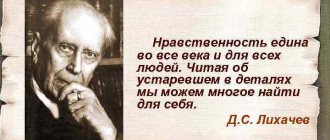Biography
French thinker, moralist writer. In his youth he studied law. Being by nature thoughtful and carefree, La Bruyère began observing characteristic social types belonging to a certain social stratum, and created their portraits in his only great work, “Characters, or Manners of the Present Age” (1688). The author tried to hide the prototypes behind fictitious names, but they, as a rule, recognized themselves and expressed their dissatisfaction. Apparently, this determined that La Bruyère was not elected to the French Academy in 1691. Two years later, despite the opposition of the “new” (in the “dispute about ancient and modern” La Bruyère spoke in defense of the “ancient” authors), he was elected to the Academy.
More about the name Jean
Aphorisms
The trouble is when a person does not have enough intelligence to say well, or common sense to carefully remain silent.
Rich is the one who receives more than he spends; Poor is the one whose expenses exceed his income.
We should not envy the wealth of other people: they acquired it at a price that we cannot afford - they sacrificed peace, health, honor, and conscience for it. This is too expensive - the deal would only bring us losses.
Most people use the best times of their lives to make the worst times even sadder.
Most people who strive for a goal are able to make one big effort rather than stubbornly follow the chosen path; Because of laziness and inconstancy, they often lose the fruits of their best endeavors and allow themselves to be overtaken by those who set out on the journey later than them and walked more slowly, but without stopping.
Let us laugh without waiting for the moment when we feel happy, otherwise we risk dying without ever laughing.
To be delighted with oneself and to maintain an unshakable confidence in one's own intelligence is a misfortune that can only befall one who is either not endowed with intelligence at all, or endowed with it to a very small degree.
There are times in life when the subtlest trick is simplicity and frankness.
In life, selfless love is more common than true friendship.
In every smallest, most insignificant, most inconspicuous action of ours, our entire character is already reflected: a fool enters, and leaves, and sits down, and gets up, and is silent, and moves differently than an intelligent person.
The one who entrusted it to another is always guilty of revealing a secret.
To punish children for offenses that they did not commit, or at least to severely punish them for minor offenses, means to lose all their trust and respect.
If there were fewer simpletons in the world, there would be fewer of those who are called cunning and dodgy.
Time strengthens friendship, but weakens love.
You think that this person has fooled you; and if he pretends to be fooled, then who is more fooled: he or you?
You have found yourself a devoted friend, if, having risen, he has not become acquainted with you.
When talking about what affects them, people admit only to their most minor shortcomings.
An old lover means so little to a woman that he is easily exchanged for a new husband, and the new husband loses his novelty so quickly that he almost immediately gives way to a new lover.
Intrigue requires intelligence, but when there is a lot of it, a person stands so much above intrigues and intrigues that he no longer condescends to them; in this case, he goes to success and fame in completely different ways.
Trust is the first condition of friendship.
Friends find pleasure in communicating with each other because they have the same view of a person’s moral duties.
If poverty is the mother of crime, then narrow-mindedness is their father.
If some of us died and others did not, it would be extremely annoying to die.
If you take a careful look at the people who cannot praise anyone, blame everyone and are not happy with anyone, then you will find out that these are the very people with whom no one is happy.
If a fool was afraid to say something stupid, he would no longer be a fool.
If two women, for whom we equally have friendly feelings, quarrel, then, even without having anything to do with the reason for their quarrel, we still fail to maintain equally good relations with both: most often we have to choose between them or lose both.
If a woman is unfaithful and this is known to the one she is cheating on, she is unfaithful - and that’s all; but if he knows nothing, she is treacherous.
If a book elevates the soul, instilling in it courage and noble impulses, judge it only by these feelings; it is excellent and created by the hand of a master.
If a person helped someone he loved, then under no circumstances should he later remember his good deed.
A woman who everyone considers cold has simply not yet met a person who would awaken love in her.
Women tend to go to extremes: they are either much worse or much better than men.
Life is what people strive most to preserve and protect least.
Both at the birth and at the end of love, people always experience confusion when left alone with each other.
A certain spiritual limitation helps other people to follow the path of wisdom.
Some people strive so passionately and persistently for the object of their desires that, fearing losing it, they do everything in their power to really miss it.
A person is truly unhappy only when he feels guilty and reproaches himself for it.
There are two paths to the high position: a well-trodden direct road and a circuitous path around it, which is much shorter.
Both excessive carelessness in clothing and excessive foppishness equally emphasize decrepitness and multiply the wrinkles of old people.
There are so few such impeccable women in the world who, at least once a day, did not give their husbands a reason to regret that they were married and to envy their bachelors.
No matter how demanding people are in love, they still forgive more offenses to those they love than to those with whom they are friends.
The key to a person's heart is sympathy for the passions that consume his soul, or compassion for the ailments that consume his body.
Death comes once, but we wait for it all our lives: the fear of death is more painful than death itself.
The shortest and surest way to make a fortune for yourself is to let people know that it benefits them to do good to you.
He who does not know how to properly use his time is the first to complain about the lack of it: he wastes his days getting dressed, eating, sleeping, empty conversations, thinking about what should be done, and simply doing nothing.
Anyone who, after talking with you, is satisfied with himself and his mind, is completely satisfied with you.
Anyone who knows how to suggest that he is not very cunning is no longer simple.
It is easier to meet people who have intelligence than the ability to use it in business, to value intelligence in others and find useful use for it.
It is easier to ask an old man when he will die than to ask a woman when she was born.
False modesty is the most subtle trick of vanity.
Love arises suddenly and unconsciously. One attractive trait is enough to strike the heart and decide our fate.
People are too careless about what they call their disposition; they should remember that being kind is not enough - they must also seem kind, since they strive to be welcoming, friendly, benevolent, in short, people.
People value too little the opportunity to bring joy to their neighbors.
People adorned with virtues immediately recognize, distinguish, and guess each other; if you want to be respected, deal only with people who deserve respect.
Can even a very gifted person endowed with extraordinary abilities not be filled with the consciousness of his insignificance at the thought that he will die, and no one in the world will notice his disappearance and others will immediately take his place?
The man is loudly indignant at the woman who stopped loving him, and is quickly consoled; the woman does not express her feelings so violently, but remains inconsolable for a long time.
A man keeps someone else's secret better than his own, and a woman keeps hers better than someone else's.
We quickly notice the slightest advantages in ourselves and slowly discover shortcomings.
We praise much more often what is praised by others than what is praiseworthy in itself. We hate our enemies and thirst to take revenge on them out of weakness, but we calm down and forget about revenge out of laziness.
We are filled with tenderness for those to whom we do good, and passionately hate those to whom we have done many harm.
We rarely regret saying too little, but we often regret saying too much: a hackneyed and banal truth that everyone knows and never follows.
There is no sight in the world more beautiful than the face of your beloved, and no music sweeter than the sound of your beloved voice.
There is no sight in the world more beautiful than the face of your beloved, and no music sweeter than the sound of your beloved voice.
Impudence is not a deliberate course of action, but a character trait; a defect, but a congenital defect. He who was not born insolent is modest and does not easily go to the other extreme. It is useless to teach him: “Be arrogant and you will succeed.” Clumsy imitation will not do such a person any good and will inevitably lead him to failure.
Only a fool is annoying: an intelligent person immediately senses whether his company is pleasant or boring, and leaves a second before it becomes clear that he is superfluous.
A punished criminal is an example for all scoundrels; innocently convicted is a matter of conscience for all honest people.
You should not allow yourself even the most innocent joke - except with polite and intelligent people.
You should not judge a person by his face - it only allows you to make assumptions.
One who is intolerant of the bad character of his neighbor does not have a very good character: let us remember that both gold and small change are required in circulation.
Only a pedant can not listen to anyone’s advice and reject all amendments.
It is not so much the mind as the heart that helps a person get closer to people and be pleasant to them.
A thankless craft is chosen by those who are trying to create a big name for themselves: their life is coming to an end, and their work has barely begun.
Ignorance is a free state and does not require any work from a person; therefore the ignorant number in the thousands.
Intemperance turns food intended to preserve life into a deadly poison.
You can't go far in friendship if friends are not willing to excuse each other's small shortcomings.
You cannot judge a person at first sight, as we judge a painting or a statue, but you need to penetrate into the depths of his soul. Advantages are usually shrouded in a veil of modesty, shortcomings are covered in a mask of hypocrisy; only a few heart experts are able to immediately comprehend the character of their neighbor; for both perfect virtue and inveterate vice reveal themselves in circumstances.
Misfortune is difficult to bear, happiness is terrible to lose. One is worth the other. There is no more beautiful excess in the world than an excess of gratitude.
There is nothing more priceless than the character of a spineless person.
Do not bow to anyone and do not expect that they will come to bow to you - this is a joyful life, a golden age, the natural state of man!
It takes very little to be distinguished by refinement of manners, and very much to be distinguished by refinement of mind.
Serious things should be talked about simply: pomposity is inappropriate here; When talking about insignificant things, we must remember that only nobility of tone, manner and expression can give them meaning.
One of the signs of mediocrity is incessant chatter.
Some value politeness in their interlocutor, others value great talents and unshakable virtue; however, in any case, polite manners highlight the advantages and make them pleasant.
Experience tells us that connivance and indulgence towards oneself and mercilessness towards others are two sides of the same sin.
From cunning to trickery there is one step, the transition from the first to the second is very easy: if you add a lie to cunning, you get trickery.
In the face of other misfortunes, it is somehow ashamed to be happy.
Cheaters tend to think that everyone else is like them.
For our love of life, old age is desirable; Because of the fear of death, old age is terrible for us.
To love is to show weakness; to fall out of love means sometimes to show no less weakness.
Sometimes women, whose beauty is perfect and whose virtues are rare, touch our hearts so much that we are content with the right to look at them and talk to them.
Gratitude for a service carries with it a considerable amount of friendly disposition towards the one who did us good.
To come to the conclusion that other people are not capable of thinking sensibly, and to reject in advance everything that they say, have said and will say, means saving yourself from many useless disputes.
The slave depends only on his master, the ambitious - on everyone who is able to help his rise.
From the point of view of mercy, death is good because it puts an end to old age.
The most exquisite pleasure is to give pleasure to others.
Freedom is not idleness, but the ability to freely manage your time and choose your occupation; in short, to be free means not to indulge in idleness, but to decide for yourself what to do and what not to do. What a great blessing is such freedom!
How many wonderful people, gifted with rare talents, died without being able to attract attention to themselves! How many of them live among us, but the world is silent about them and will never talk about them.
Modesty is as necessary to virtues as the figures in a picture need a background: it gives them strength and relief.
Regret over the unwisely wasted time that people indulge in does not always help them to use the rest wisely.
Justice towards one's neighbor should be done without delay; to delay in such cases means to be unfair.
Old age easily overcomes reason, but it achieves a great victory when it manages to overcome self-interest.
A metropolitan resident is for a provincial woman what a courtier is for a metropolitan resident.
The essence of courtesy is the desire to speak and behave in such a way that our neighbors are pleased with us and with themselves.
The talent of an interlocutor is distinguished not by the one who willingly speaks himself, but by the one with whom others willingly speak.
The father-in-law does not love the son-in-law, the father-in-law loves the daughter-in-law; mother-in-law loves son-in-law, mother-in-law does not love daughter-in-law; everything in the world is balanced.
Only people with base souls can lavish praise on those about whom they spoke disdainfully before their rise.
It is much easier to grieve for someone you love than to live with someone you hate.
He who falls in love with an ugly woman falls in love with all the power of passion, because such love testifies either to the strange whim of his taste, or to the secret charms of his beloved, stronger than the charms of beauty.
The one who works for others is always full of self-confidence, like a person who seeks justice; begging or seeking something for himself, he is embarrassed and ashamed, like a person who begs for favors.
The hardest thing to heal is the love that flared up at first sight.
It is difficult to say what indecision deserves more - pity or contempt, and it is not known what is more dangerous - making an erroneous decision or not making any one.
Children have neither a past nor a future, but unlike us adults, they know how to use the present.
In friends we notice those shortcomings that can harm them, and in loved ones those from which we ourselves suffer.
Everyone has their own idea of female attractiveness; beauty is something more immutable and independent of tastes and judgments.
The subjects of a despot have no homeland. The thought of it is crowded out by self-interest, ambition, and servility.
The minds of all people taken together will not help someone who does not have their own: a person deprived of sight is not able to make up for this deficiency at the expense of those around him.
Love dies from fatigue, and oblivion buries it.
Praiseworthy epithets do not constitute praise. Praise requires facts, and skillfully presented ones at that.
A good doctor is a person who knows the remedies for certain ailments or, if the disease is unfamiliar to him, calls to the patient those who can help him.
It is often much shorter and more useful to adapt oneself to others than to force others to adapt to oneself.
Often people fall from great heights due to the same shortcomings that helped them achieve it.
A person with great virtues and great intelligence, which are recognized by everyone, is not ugly even if he has ugly facial features: ugliness, even if it exists, does not make an impression.
A narcissistic person is something between a fool and an impudent person: he has something of both.
A narcissistic person is one in whom fools see an abyss of merit.
A cowardly person who has lost all shame can agree to any nasty thing.
A vain person takes equal pleasure in saying both good and bad things about himself; a modest person simply does not talk about himself.
A person who is strongly convinced that he is very intelligent is almost always one of those people who have either little or no intelligence.
The more our neighbors are like us, the more we like them; Respecting someone seems to be the same thing as equating them with yourself.
The less a person says, the more he wins: people begin to think that he is not devoid of intelligence, and if, moreover, he is really not stupid, everyone believes that he is very smart.
Generosity is not so much about giving a lot as it is about giving. to give in a timely manner.
"Characters"
Les Caractères 10e ed 1699
La Bruyère's Caractères, the only work of his entire life, consists of 16 chapters, two of which are devoted to ecclesiastical eloquence and free-thinking; here La Bruyère is a believing Christian, an opponent of atheists and skeptics. In all other chapters, La Bruyère does not touch upon either religious or purely philosophical issues. He does not bring his ideals into life, but applies the measure of existing conditions to the actions and characters of people. It is impossible to find a complete worldview or philosophical system in his book; it only shows the funny side of some fashion, the vileness of this or that vice, the injustice of some opinion, the vanity of human feelings - but these scattered thoughts are not reduced to one basic idea. In the field of everyday observations, La Bruyère reveals great subtlety of understanding, notes shades of feelings and relationships; The chapter “about the heart” testifies to how much tenderness and love was hidden in this contemplator. Many of his characterizations are written in a bitter, sarcastic tone; the author obviously suffered a lot from the prejudices of society, and Taine, not without reason, compares him in this regard with J. J. Rousseau. The peculiarity of La Bruyère’s book is its portraits: these are solid types and episodes full of drama. Particularly famous are the types of Emira - an arrogant coquette, Gnaton - a repulsive egoist, Menalka - an absent-minded person, Phaedon - a humiliated poor man. All these portraits reveal in La Bruyère a rich imagination, the ability to enhance characteristics with an abundance of life details, enormous skill and colorful language. Contemporaries recognized in most of the portraits various outstanding people of that time, and to this day the historical interest of La Bruyère’s book is significant, due to the accuracy of the depiction of the people and morals of the era; but even higher is its psychological, universal interest and its purely literary merits.






